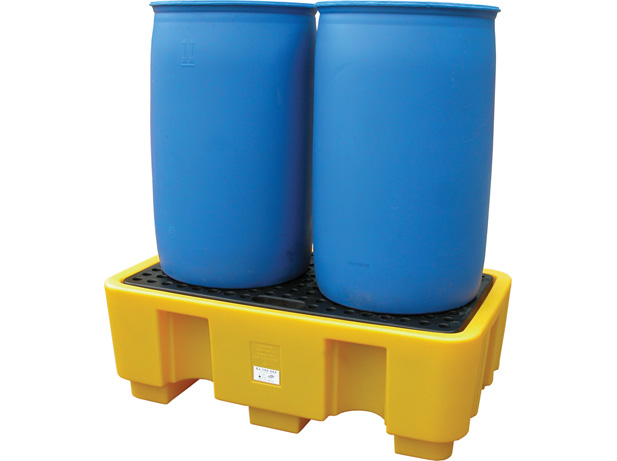When it comes to corrosive chemicals, the utmost care and precaution is required. It is most important to ensure specialist spill protection / bunding to cater for the specific requirements of corrosive chemicals. Such chemicals have an aggressive nature and the potential harm that they can do if they leak or spill can be catastrophic.
Corrosive chemicals can be extremely dangerous to the environment and are particularly hazardous to personnel. It is therefore important if you store corrosive chemicals on site, that you have adequate bunding in place to capture and retain any spilled chemicals.
A chemical bund is designed to capture and retain any spilled chemicals. This in turn prevents leaked or spilled chemicals from causing injury to employees and entering the water course and causing environmental pollution.
Chemical Bunds for Corrosives
Bunds used in corrosive chemical storage cabinets will need to be made from materials resistant to attack by the corrosive chemical. Corrosive liquids have the ability to eat through both steel and concrete. Therefore, the favoured material of construction for bunds for corrosives is plastic, typically polypropylene or polyethylene.
The standard epoxy coated steel bunds in typical bunded chemical storage units can be fitted with poly liners if corrosive chemicals are being stored. Your chemical storage supplier will be able to recommend the most suitable bund liner material which offers resistance against damage from your corrosive chemicals. Great care needs to be taken when spilled corrosive chemicals are being removed from bunds. Reference should be made to the MSDS and suitable PPE should be worn.
The Dangers of Corrosive Chemical Vapours
The vapours from Corrosive Chemicals are also extremely corrosive. When storing corrosive chemicals indoors in safety cabinets, particular attention should be made to the cabinets material of construction. Even if there aren’t any spills, small traces of corrosive chemicals around the cap of the chemical container or bottle can give off corrosive vapours.
The vapours from Nitric Acid are particularly corrosive and will corrode the internal surfaces and lock mechanisms of metal chemical safety cabinets. The rate of metal corrosion is greater when the corrosive is stronger and the temperature is higher. If storing highly corrosive chemicals indoors, it is recommended that you store them in all plastic or plastic laminate corrosives cabinets. Internal chemical storage cabinets will need to offer plastic spill trays in the base.
For more information of chemical safety and corrosive chemical storage, read our previous blog posts or contact our expert team.
